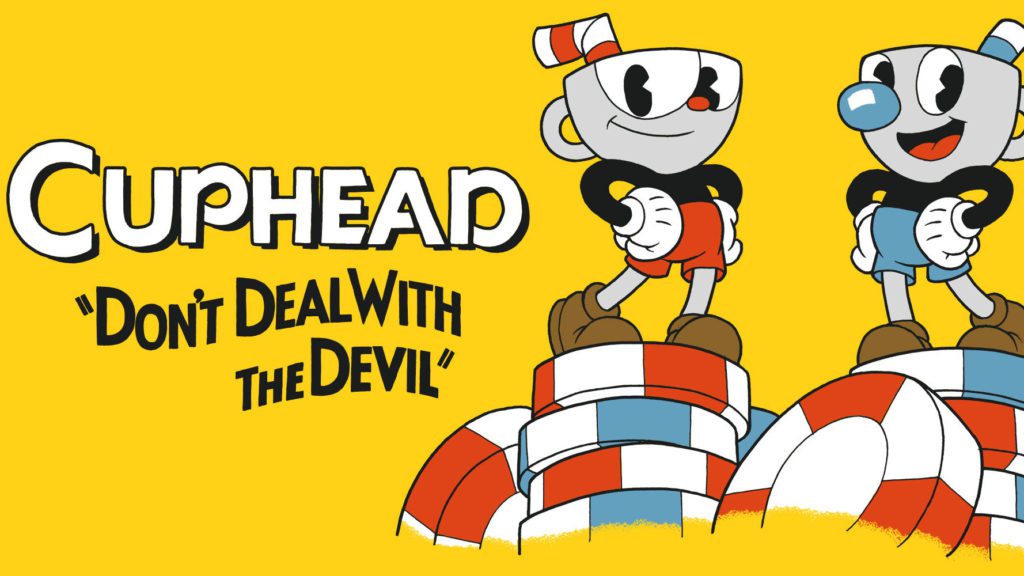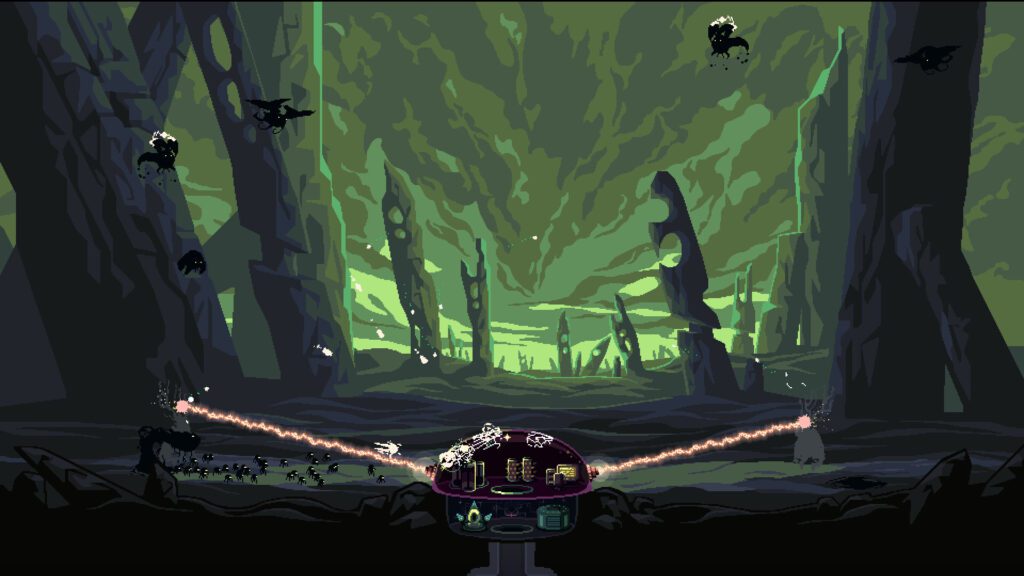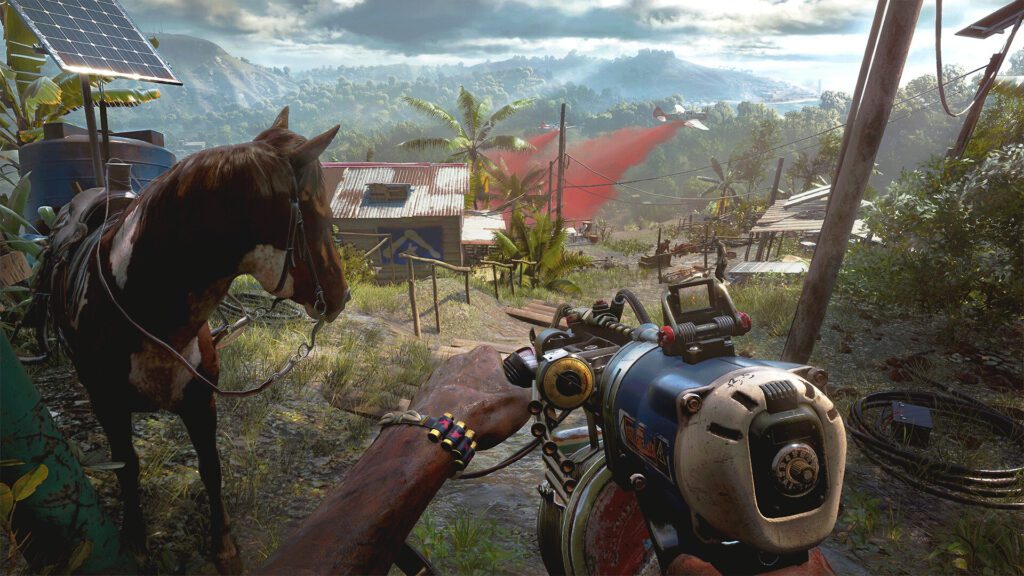When playing games, have you ever wondered what makes them tick? The technology seamlessly uniting design, art, audio, and code into these enjoyable games is called a game engine – you can think of them as a specialized software framework that provides developers with a plethora of tools to create all these games.
They handle the heavy lifting of rendering visuals in real-time, simulating physics efficiently, processing which buttons or keys players are pressing, playing sound effects, and much more, providing reusable solutions for many aspects of game creation. In turn, this enables developers to focus on creating the best gaming experience possible.
Even though there are dozens of viable and popular game engines, not all of them are free. This is why we’re bringing you this article – we’ll explore 9 amazing free game engines for you to start your journey into game development. Let’s get started!
8 of the best free game engines available
Unity
First released in 2005, Unity is now one of the most loved and popular game engines available on the market. It provides a user-friendly interface and a robust set of tools to create games with minimal hassle. Even though the interface might initially feel daunting, navigating through it will be second nature within hours.
As seen in our other article, Unity uses C# as its main programming language. Still, it’s possible to create games using Bolt, their proprietary visual programming system, which lets developers work on games without writing a single line of code. Additionally, it’s possible to extend Unity to other languages, like Python (via IronPython or plugins like Python for Unity) and LUA (via MoonSharp).
This feature-complete engine also sees numerous free assets and plugins created by its massive community, which further boosts its already high potential. Thus, Unity is one of the top free game engines one can use to develop games for multiple platforms.
Examples of games created with Unity: Beat Saber, one of the most popular virtual reality (VR) games, Monument Valley, Cuphead, and Hearthstone.

Unreal Engine
Launched in 1998, Unreal Engine is a sophisticated 3D game engine that sees a lot of use in bigger game development studios. The engine is written in C++, which provides low-level access and extreme performance, which are essential for running state-of-the-art AAA games without dropping frames.
Developers also use C++ to write code for Unreal Engine titles, but, just like Unity, it offers a node-based visual programming system to ease beginners into game development. Blueprint, as it’s called, can be used to implement game logic, modify AI behavior, control user interfaces, and much more without writing code – but it can be converted into C++ on demand.
Unreal Engine sees a lot of praise for its realistic rendering capabilities, which is only possible thanks to features like global illumination, volumetric fog, and full HDR support. In its latest iteration, it also brings a virtualized geometry system, virtual shadow maps, and even a way to control thousands of AI-powered entities at once with its Mass AI system – you can read more in-depth about these impactful features in our other article.
Some gaming masterpieces developed with Unreal Engine include Fortnite, currently the most popular title of its genre, ARK: Survival Evolved, Scorn, and ABZÛ, a critically-acclaimed indie game.
Godot
Godot is a completely free and open-source game engine for 2D, 3D, and VR projects that was released in 2014, making it one of the newest game engines on this list.
It stays true to its FOSS (free and open-source software) philosophy as it’s maintained collaboratively by developers all over the world. By the way, this implies unparalleled levels of customizability, allowing you to fix bugs, add features, and modify the engine to your specific needs … granted you know your way around with C++.
As for its programming languages, Godot features GDScript, a Python-like language designed to be easy to read, but it also supports C# and C/C++ for those who prefer static typing or come from other game engines, like Unity and Unreal.
While it puts more emphasis on 2D and mobile games, Godot offers impressive capabilities and tools for those looking to develop 3D games. Examples of games created with this recent, but popular game engine include Dome Keeper, Wrought Flesh, Brotato, and Fist of the Forgotten. You can check more creations on their official showcase page.

Armory
Designed to integrate seamlessly with Blender, one of the most popular software in 3D asset creation, Armory is another open-source game engine. If you’re familiar with Blender’s logic nodes system, used extensively for materials, textures, and compositing, you’ll easily get up to speed with Armory.
For those who are more proficient at writing code or need to implement complex behavior, Python and Haxe are the languages of choice. The latter is particularly important as it allows developers to compile games for most platforms.
All in all, Armory might not be the most feature-complete game engine, but it provides a full 3D pipeline for modeling, animating, programming, and publishing 3D games in a familiar environment, making it an interesting fully open-source alternative to other game engines.
Some games created with Armory include Road to Eternity and The Grand Cattle Heist, both available on Itch.io.
Phaser
Phaser is an open-source and cross-platform JavaScript framework for building games for many platforms directly from your browser. Released in 2013, it provides a fast and beginner-friendly toolkit for game development that can be accessed for free – though some of its most powerful features are locked behind a paywall. However, the license is free!
Developers can use plain JavaScript or TypeScript to create games, and Phaser’s API handles textures, particles, and sprites like a champ. It also requires no external dependencies (which maximizes integration with other platforms), lets developers only include needed modules (which keeps files small), and fully supports Canvas and WebGL rendering.
One of the most popular games developed with Phaser is Vampire Survivors, the highly addictive 2021 indie hit that receives DLCs providing tens of hours of content every few months. Frog Corral and Cat’s Cradle are two other popular games developed with this engine, and you can check thousands more on Itch.io!
CryEngine
Originally a proprietary game engine, CryEngine launched as an open-source project some years ago. It provides robust support for VR titles, incredible visual effects, and ultra-high-fidelity graphics, being an awesome choice for AAA games. It also offers a variety of tools to make the game development pipeline easier, and its open-source nature lets high-level programmers tailor CryEngine to their likes.
Developers can use C++ as its programming language along with a visual programming system called Schematyc, providing low-level access for performance-critical code and accessible scripting at the same time.
Despite its amazing potential, CryEngine is considered one of the hardest free game engines available. Nonetheless, it serves as the backbone for many popular franchises, like Far Cry, Wolcen: Lords of Mayhem, Star Citizen, and Ryse: Son of Rome.

Corona
Released in 2009, Corona is a cross-platform framework that aims to streamline the development process of mobile games. It uses LUA, one of the most beginner-friendly programming languages available, which lets developers prototype and iterate through different designs quickly.
Corona ends up being a great option for game developers as it’s completely free: unlike some other free game engines in this list, you won’t have to pay royalties or get a subscription depending on how successful your game is.
Its development environment makes it dead easy to implement ads and monetization methods, and it also offers access to native APIs for features like the phone’s camera, notifications, and vibrations, which can further enhance the gameplay experience.
Corona was the technology behind games like Dabble (developed by George Weiss, who was 84 when he released his game) and Knights of the Card Table.
Defold
Defold is an open-source and free game engine developed by King, the same company behind franchises like Candy Crush Saga and Bubble Witch 3 Saga. Optimized for 2D game development, Defold lets developers publish titles for multiple platforms out of the box, targeting mobile devices as well as web and desktop applications.
Also using LUA as its programming language, which is natively integrated within the application, this free game engine is perfect for creating games with an iterative approach. Furthermore, it provides a built-in editor for game scenes, which can be programmed visually, making it a compelling choice for beginner developers.
Some games created with Defold include Monkey Mart, Apple Spiders, and Onet Paradise, but you can check more on their official showcase page.
Caveat: are these engines really free?
While all game engines we’ve covered above tout free licensing, some do come with caveats.
Unity, for example, offers a basic (“Personal”) subscription for free, but you are only eligible to use it so long as your game hasn’t made more than $100,000 in revenue in the past 12 months. Unreal Engine is also free, but it generates revenue differently: it requires a 5% royalty fee after the first million earned from a game. While this share doesn’t seem impactful, it can wreak havoc on games that work with smaller profit margins and successful AAA games.
There are fully open-source and free game engines like Godot, Corona, and Defold, but make sure to research and thoroughly understand their limitations before committing to an engine – it’s better to spend some time now than lament your decision down the road.
Unleash Your Creativity: Harnessing the Power of Free Game Engines
Interested in exploring the realm of game development without breaking the bank? Free game engines like Godot Engine and GameMaker offer a wealth of features suitable for both 2D and 3D game creation. With user-friendly interfaces and comprehensive documentation, beginners can quickly grasp game design concepts through tutorials.
Whether you’re aiming to develop for iOS, Android, or desktop platforms, these engines provide seamless export options. Additionally, their compatibility with various operating systems, including Linux and macOS, ensures accessibility for all developers. From crafting game code to incorporating physics engines, these tools offer an intuitive way to bring your ideas to life.
So, if you’re seeking an easy-to-use yet powerful solution to make games, a free game engine might be just what you need. With a bit of exploration, you can deploy your creations across multiple platforms and utilize languages like JavaScript or C to enhance your projects.
Conclusion
As seen in this article, game engines are powerful tools that serve as the backbone of most games. While most are proprietary (like Nintendo’s) or require an upfront fee, there are many free game engine options for developers to enjoy, like Unity, Unreal Engine, and Godot to name a few.
From now on, it’s up to you to decide which one to use. Make sure to take potential licensing issues, their programming languages, community sizes, set of tools, and other factors into consideration when making a choice!
But what if you have a fantastic vision for an upcoming game, but lack the skills, the time, or the personnel required to make it real? In this case, consider partnering with consolidated game studios like Main Leaf. Our 70+ developers have unmatched experience designing, building, and delivering impeccable games using Unity and Unreal Engine.
We can also act as an outsourcing partner for all your game development needs: whether you need help with game assets, designing a creative and fun game, implementing a game mechanic, catching and fixing those pesky bugs, or even adding blockchains to it, we can do it all. And you’ll have full transparency on your costs, which are tracked automatically through our system.
To get started with the creation of your upcoming masterpiece, fill out the form below and we’ll get back to you within 24 hours!

